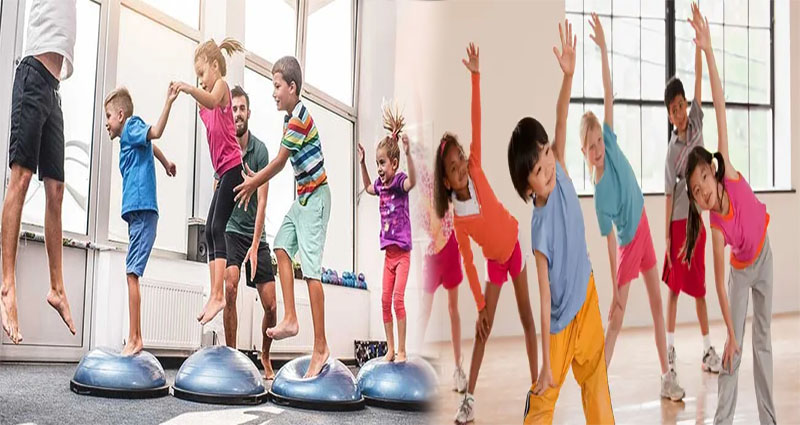When you were a kid, did your parents ever tell you to go outside and play? That wasn’t just idle advice—they were right! Exercise has many benefits for children and teens, including better heart health and stronger bones. In this post, we’ll explore how cardiovascular exercise can help keep kids healthy and happy as they grow up.
Cardiovascular exercise is any activity that raises your heart rate.
Cardiovascular exercise is any activity that raises your heart rate. You can measure your pulse by placing two fingers on the inside of your wrist and counting how many times it beats in a minute.
Your heart rate tells you how fast or slow your body needs to work to stay healthy, so it’s important to know what yours is when you’re exercising. If you don’t have a friend who knows how to check for a pulse oximeter (a device used by doctors), ask an adult who does know how!
There are many ways for children and teens with CF (cystic fibrosis) or other chronic lung diseases like asthma and COPD (chronic obstructive pulmonary disease)
When you exercise, your body starts to use oxygen more efficiently and creates more energy than usual.
When you exercise, your body starts to use oxygen more efficiently and creates more energy than usual. This is called metabolism. When you don’t exercise enough, your metabolism slows down and can make it harder for your body to have the energy it needs.
When people talk about exercising or working out, they usually mean doing something like running or lifting weights that gets their heart rate up (called aerobic exercise). Aerobic means “with oxygen,” so this type of activity helps your heart beat faster so it uses more oxygen in order to keep up with how hard you are working out. This makes your body better able to use oxygen during everyday activities as well as during an intense workout session!
Exercise benefits the whole body.
- Exercise is good for the heart.
- Exercise is good for the brain.
- Exercise is good for the body.
- It helps you feel better, sleep better and look better!
Exercise can help kids reduce stress, feel happier, and build self-esteem.
Exercise can help kids reduce stress, feel happier, and build self-esteem.
While we all know that exercise is good for us, we often forget that it has many other benefits as well. Exercise has been shown to improve sleep quality, reduce anxiety and depression symptoms in children with ADHD (attention deficit hyperactivity disorder), boost energy levels and improve mood overall. Even if your child isn’t struggling with any of these issues right now–and especially if he or she does–starting an exercise routine early in life may help prevent them from developing later on.
If your child is already stressed out by schoolwork or extracurricular activities like sports practice or dance classes at the studio down the street from home then adding cardiovascular activity into their schedule might seem like too much pressure right now. But don’t worry! There are plenty of ways you can add some cardio into your kid’s life without making him feel like he has another thing on his plate:
Being active helps kids learn better and remember more information, too!
Cardiovascular exercise is a powerful tool for helping kids learn and remember, too.
Cardiovascular exercise has been shown to improve memory, focus and attention span. The reason? Exercise increases blood flow to the brain–and with more oxygen-rich blood flowing through your body, all of your organs get better nourished (including your brain!). When we are physically active, our brains function at their best because they receive more energy from an increased supply of oxygenated blood.
So what does this mean for school children? If you’re an active kid who gets lots of cardiovascular exercise every day (running around outside), then congratulations: You’re already ahead of the game in terms of cognitive function!
Kids who get more exercise have healthier hearts and better memories.
You probably already know that exercise is good for the heart. But did you know it can also help your kids learn better and feel happier?
Exercise improves blood flow to the brain, which means that kids who get more exercise have healthier brains. This leads to them having better memories, paying attention in class and learning faster than their peers who don’t get enough physical activity.
Exercise strengthens muscles by increasing lean body mass (muscle) and reducing fat mass (fat). This means that when children have more muscle they’ll be able to do things like climb stairs or run faster – which will help them feel confident about themselves as they grow up!
In addition to these physical benefits from regular cardio workouts like jogging or swimming; there are psychological benefits too such as reduced stress levels and better self-esteem because of all this hard work on our bodies!’
In conclusion, cardiovascular exercise is a great way for kids to improve their health and learn better. It can help them remember more information, feel happier, and reduce stress. Exercise also helps build self-esteem by making kids feel good about themselves when they take care of their bodies by being active!












